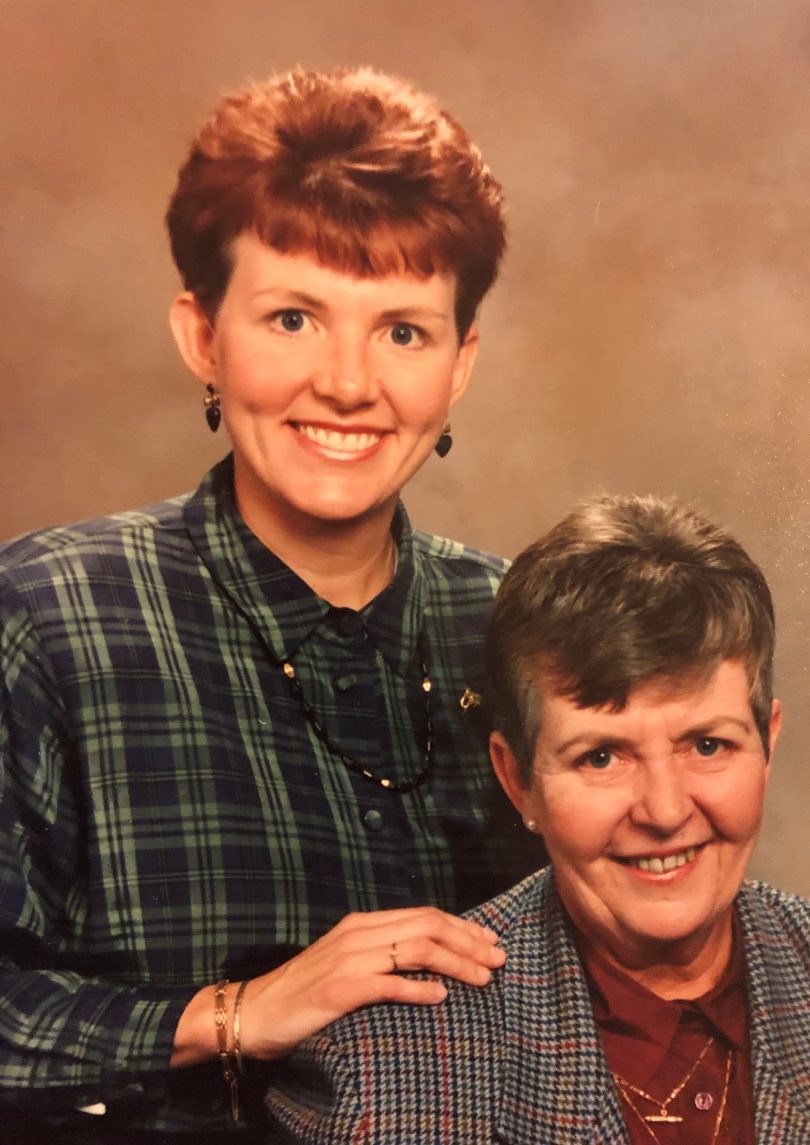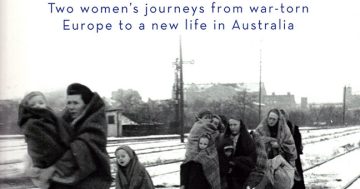
Lisa Wylie, counsellor/wellbeing worker, says we need to reflect on how we help others deal with grief. Image provided by Lisa Wylie.
When someone near and dear to us is dealing with grief we naturally want to help. But do we understand grief and loss well enough to be able to do so?
Lisa Wylie says many of us don’t. And many of us don’t know how to cope when we’re grieving.
The topic inspired Lisa to write her first novel, Dear Life, which evolved from the intense pain she felt after her mother died of cancer.
“I was six months pregnant with my fourth child, which made everything even more raw,” says Lisa.
“What I learned through the process is that I didn’t really understand what grief was or how to deal with it. And while I had loads of support from family and friends who all had such good intentions, I didn’t always feel comforted.”
Lisa works as a counsellor/wellbeing worker with families in crisis – all kinds of crises – for a non-government organisation in the capital. She has a degree in Social Science Welfare, majoring in grief and loss. Through her intensely personal experience, it dawned on Lisa that we’re not taught how to grieve.
“There’s no ‘how-to’ book to tell us how we will feel and why. There’s no written formula on how long it will take. I thought it would be beneficial to explore the subject further,” says Lisa.

“When my mum passed, I realised I didn’t really understand what grief was or how to deal with it,” says Lisa. Photo: Lisa Wylie.
Dear Life is about Beth Taylor. Life is moving along swimmingly until Beth faces tragedy and finds herself alone and unhappy. She eventually strikes a relationship with charming Chad, an entrepreneur from Los Angeles. Tragedy strikes once more, but this time Beth meets a young girl who has also experienced great loss. Through their new relationship, Beth’s life changes forever.
Lisa openly admits bits of her life weave their way through the storyline, including suddenly facing major grief at a major point in life.
“I remember when my mother died. I would tell someone about her passing, and they would often react by focusing the conversation back on themselves, telling me about how they had lost someone,” says Lisa.
“It’s not that I wasn’t interested but my own emotions were at an all-time high. I didn’t need competition. I didn’t need all the answers. I didn’t need advice. I just needed someone there to sit with me.”
Lisa doesn’t blame people for their reactions.
“We really don’t all understand grief and loss. We try to choose words carefully and try to help in the best possible way, but we’re not always helpful,” says Lisa. “I decided that this was a story I wanted to write about.”
It wasn’t just Lisa’s personal experience that inspired her to give serious consideration to such a serious topic, it was her 20-year career in the community sector.
In addition to her current role, Lisa has worked with individuals and families as a youth worker, domestic violence support worker and counsellor.

Lisa says learning how to genuinely help others in times of grief or loss starts by understanding that it’s a highly personal matter. Photo: Supplied.
“People grieve for many reasons, not just the death of a loved one,” says Lisa. “It can be a relationship separation, the loss of employment, alienation from family and friends due to drugs or alcohol abuse or any type of tragedy.”
Lisa says learning how to genuinely help others in times of grief or loss starts by understanding that it’s a highly personal matter.
“I explore how to just be there without feeling the responsibility to pipe up with or own views or experiences. It doesn’t help, for example, to say that time will heal because it may not.”
Lisa still feels the pain of her mother’s death, even though years have passed, and she always will. Writing Dear Life has helped her on her quest to better understand grief.
Dear Life is available through Amazon.





















